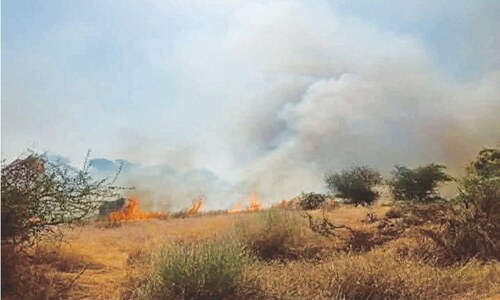ISLAMABAD, Feb 29: Pakistan has challenged Human Development Index (HDI) of the United Nations Development Programme which ranked it at 144th position in the group of low human development countries instead of its actual 136th position, which falls in the medium human development category.
Official sources told Dawn that the UNDP had estimated the HDI of Pakistan at 0.499 and thus brought its ranking down to 144th which falls in the low human development countries.
The government claims that its actual position should have been 136th which is in the category of medium human development countries. In a letter to the UNDP, the former director of the Centre for Research on Poverty Reduction and Income Distribution (CRRPRID), Dr Mushtaq A. Khan, had challenged the basic data on which the UNDP had ranked Pakistan.
The letter said that according to the Pakistan Demographic Survey of 2000, the life expectancy at birth for men was 64 years and for women it was 66 years. However, projections made by the National Institute of Population Studies (NIPS) bring up the life expectancy for men to 63.48 years and for women to 63.64 years for 2001, making the life expectancy at birth for both sexes to be 63.56 years in 2001.
The value of HDI for Pakistan is estimated, thus, to be 0.515 in 2001 which is higher than 0.499 as estimated for the same year by the UNDP and thus ranking Pakistan at 144th based on the HDI value.
It said that using the factual data of life expectancy at 63.56 years, literacy rate at 44 percent, combined gross enrolment rate at 36 per cent and GDP per capita at $1890, the country is ranked at 136th position for 2001, "bringing it in the group of medium human development countries instead of the low human development countries".
The UNDP has used the same data to reach the HDI value of 0.499 for Pakistan except the life expectancy rate at 60.4 years instead of 63.56 years. Just because of this difference, Pakistan fell behind Sudan, Bangladesh, Congo, Cameron and Nepal.
Education Minister Zobaida Jalal has also written letters to the UNDP, the sources said. They said that Dr Khan was fired from the post of CRRPRID director by the UNDP for challenging it. The CRRPRID is a UNDP funded project.
In a letter, the UNDP told Mr Khan that as he had attained the age of super annuation, he could not continue as CRRPRID director. He had already attained the super annuation before joining the CRRPRID on his retirement from a government job. His successor who has been hired recently, has also attained the retirement age.













































Dear visitor, the comments section is undergoing an overhaul and will return soon.